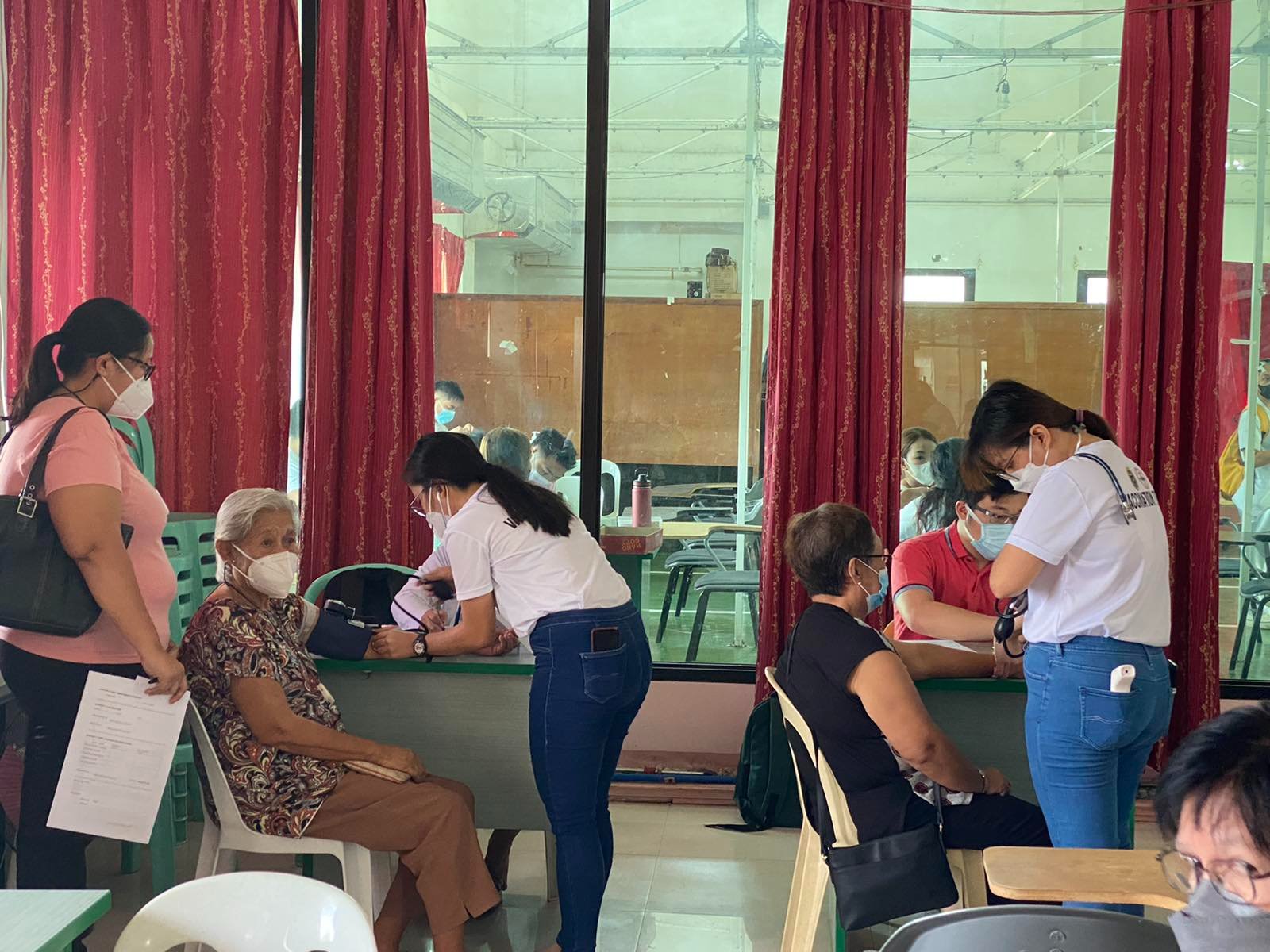DOH: No rise in COVID-19 cases in Ilocos region after elections

The blood pressure rate of senior citizens is taken before they get their COVID-19 vaccine booster shots at Mariano Marcos Memorial Hospital and Medical Center in Batac City, Ilocos Norte. | PHOTO: Mariano Marcos Memorial Hospital and Medical Center-Health Education and Promotions Office
LAOAG CITY, Ilocos Norte —— The number of COVID-19 cases in the Ilocos region remained at a safe level of transmission after the May 9 elections, according to the Department of Health regional office.
At a press briefing on Thursday (May 26), Dr. Rheuel Bobis, regional DOH COVID-19 focal person, said the region did not note an uptick, and the trend of cases remained low after the elections.
He said there was also no significant rise in COVID-19 cases after the Holy Week break in April.
The DOH’s latest monitoring showed the positivity rate—the percentage of people testing positive for COVID-19 among those tested–in the region remained at 0.4 percent. The recommended positivity rate by the World Health Organization is five percent.
The regional DOH earlier said they were not dismissing the possibility that cases would rise after the elections.
Article continues after this advertisement“What we are trying to say is that COVID-19 is still here and the chance that the virus could spread also remains present,” Bobis earlier said.
Article continues after this advertisementActive COVID-19 cases in the region, which comprises the provinces of Ilocos Norte, Ilocos Sur, La Union, and Pangasinan, stood at 41, according to Bobis.
Despite this, Bobis still warned the public not to be complacent and to strictly adhere to minimum public health standards, especially with the threat of the Omicron variants.
Bobis said the best defense is to ensure they get vaccinated and have booster shots, if eligible.
“Vaccine boosters provide better protection against COVID-19 variants,” Bobis said.
Bobis said most of those who suffered from severe and critical COVID-19 in the region in the past four months were unvaccinated.
Data from the regional DOH showed that of the 202 severe and critical COVID-19 hospital admissions from January to April, 158 or 78 percent, were unvaccinated.
The latest DOH data show that more than 3.6 million individuals in the region were fully vaccinated, reflecting 84 percent of the 4.3 million target population. Of the fully-vaccinated individuals, at least 778,149 had received booster shots.
Across the region, qualified senior citizens and health workers had started receiving their second booster shots of either Pfizer or Moderna vaccines, said Bobis.
lzb
For more news about the novel coronavirus click here.
What you need to know about Coronavirus.
For more information on COVID-19, call the DOH Hotline: (02) 86517800 local 1149/1150.
The Inquirer Foundation supports our healthcare frontliners and is still accepting cash donations to be deposited at Banco de Oro (BDO) current account #007960018860 or donate through PayMaya using this link.